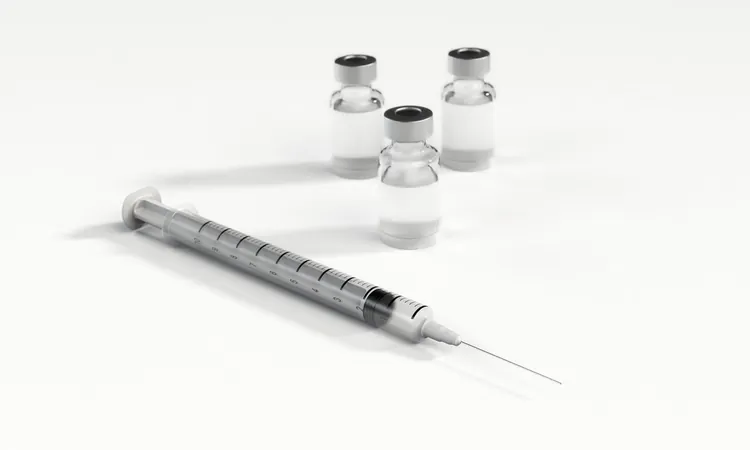
Breakthrough Cancer Vaccine Shows Promise in Preventing Tumor Progression – The Future of Treatment?
2024-10-07
Author: Siti
Breakthrough Cancer Vaccine Shows Promise in Preventing Tumor Progression – The Future of Treatment?
A recent study from Vanderbilt University has unveiled groundbreaking findings regarding a cancer vaccine that shows potential when administered at the early stages of tumor development. Initially, this vaccine struggled in clinical trials for patients with advanced cancers, but the study suggests a paradigm shift in its application timing could yield remarkable results.
Researchers conducted experiments using a mouse model, demonstrating that administering the cancer vaccine during the early lesion stage effectively hindered tumor progression. The study, published in the prestigious Journal for ImmunoTherapy of Cancer, revealed an encouraging presence of tumor-specific T cell populations in mice with early-stage lesions, a critical factor that could be harnessed through timely vaccination. In contrast, mice with more advanced tumors showed a significant loss of these immune cells.
Mary Philip, MD, Ph.D., the senior author of the study and associate director at the Vanderbilt Institute for Infection, Immunology, and Inflammation, emphasized the importance of this timing. "Our study suggests that the timing of vaccination is crucial. It's astonishing that a single immunization at the correct moment can provide long-lasting protection. Few studies have followed mice post-vaccination while keeping them tumor-free for as long as two years," Philip stated.
Moreover, the research highlighted that early intervention with the vaccine successfully inhibited tumor growth even when conventional immune checkpoint blockade (ICB) therapies fell short. ICB therapies, while approved for treating patients with advanced cancer, only lead to durable remission in a small fraction of cases. Philip elaborated, "ICB is designed to activate T cells, but without prior stimulus, these T cells remain ineffective. Our vaccination activates them, enabling them to target and eliminate early cancer cells."
The researchers utilized a genetically relevant cancer mouse model, focusing on hepatocytes (liver cells) that occasionally go through oncogenic changes. They discovered that mice with early lesions maintained a population of progenitor TCF1+ tumor-specific CD8 T cells, a crucial component for vaccine efficacy, which was absent in mice with progressive tumors.
The vaccine tested in this study employs a gram-positive intracellular bacterium designed to elicit robust CD4 and CD8 T cell responses and is engineered to express tumor-specific epitopes, thereby enhancing T cell activity against tumors. Remarkably, all the mice vaccinated during the early stage remained tumor-free, whereas vaccinations given later yielded no success in slowing liver tumor development.
These findings advocate for additional research into cancer vaccines aimed at early intervention, potentially paving the way for long-term, progression-free survival for more cancer patients. With ongoing advancements in personalized medicine and the successful application of mRNA vaccine technology for COVID-19, there is renewed optimism surrounding innovative cancer treatment strategies.
As the medical community becomes increasingly aware of the critical role of timing in vaccination, this study's revelations could change the landscape of cancer prevention and treatment, offering hope to millions battling this formidable disease. Stay tuned for future developments in this exciting field of research that could redefine how we approach cancer therapies!




 Brasil (PT)
Brasil (PT)
 Canada (EN)
Canada (EN)
 Chile (ES)
Chile (ES)
 España (ES)
España (ES)
 France (FR)
France (FR)
 Hong Kong (EN)
Hong Kong (EN)
 Italia (IT)
Italia (IT)
 日本 (JA)
日本 (JA)
 Magyarország (HU)
Magyarország (HU)
 Norge (NO)
Norge (NO)
 Polska (PL)
Polska (PL)
 Schweiz (DE)
Schweiz (DE)
 Singapore (EN)
Singapore (EN)
 Sverige (SV)
Sverige (SV)
 Suomi (FI)
Suomi (FI)
 Türkiye (TR)
Türkiye (TR)